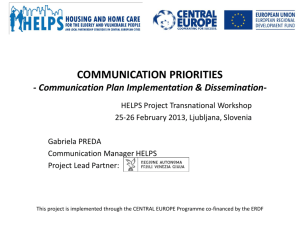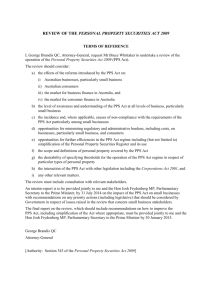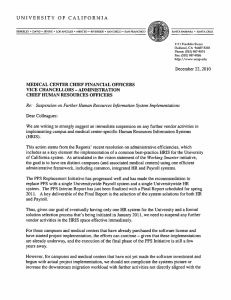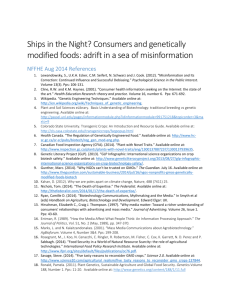Commission on Teacher Credentialing Biennial Report California State University, Fresno
advertisement
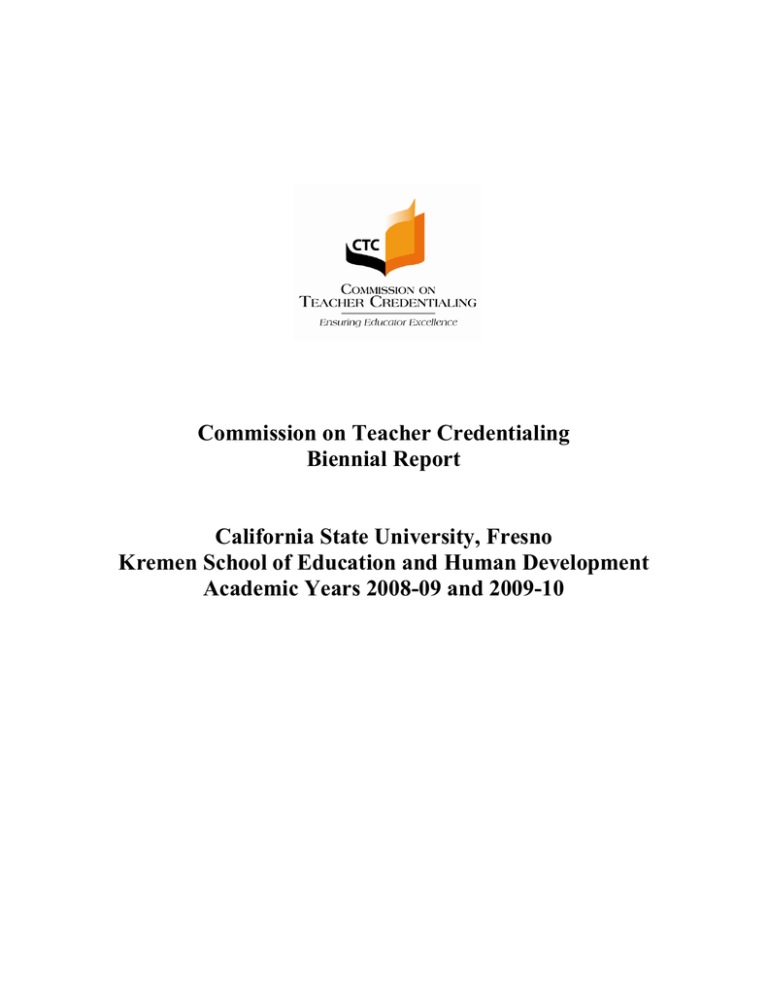
Commission on Teacher Credentialing Biennial Report California State University, Fresno Kremen School of Education and Human Development Academic Years 2008-09 and 2009-10 Commission on Teacher Credentialing Biennial Report Academic Years 2008-09 and 2009-10 Institution California State University, Fresno Date report is submitted October 15, 2010 Program documented in this report Social Work and Child Welfare and Attendance Name of Program Pupil Personnel Services Credential awarded Social Work and Child Welfare and Attendance Is this program offered at more than one site? If yes, list all sites at which No the program is offered Program Contact Andrea Carlin Phone # 559.278.3039 E-Mail andreac@csufresno.edu If the preparer of this report is different than the Program Contact, please note contact information for that person below: Name: Phone # E-mail California State University, Fresno: 2008-2010 Section A-1 Contextual Information PPS Program: Social Work and Child Welfare and Attendance (CWA) California State University, Fresno is one of twenty three universities in the California State University system. Fresno State began as a normal school in 1911 and has a strong history of service and preparation of education professionals. Fresno State’s last joint visit (NCATE/CCTC) was in March 2006. The Dean of the Kremen School of Education and Human Development is the Unit Head that oversees 16 credential programs. The Pupil Personnel Services (PPS) program with specializations in school social work and CWA is part of the Master of Social Work (M.S.W.) degree. The M.S.W. and PPS is a two year, full-time program of 60 units: 50 units of course work and 10 units of concurrent field placement study. The program utilizes an advanced, multi systems social work practice concentration as the model for educating advanced practitioners who can meet complex client needs within a diversity of settings and who can perform in a variety of roles using appropriate social work practice methodologies. Three important goals of the Master of Social Work Degree program include the development of 1) a commitment to social justice, 2) diversity awareness/competence, and 3) an empowerment perspective. The PPS credential program incorporates these educational goals in its mission to prepare social workers to "perform services to children, parents, school personnel and community agencies to promote a school environment responsive to the needs of children and to plan educational programs which will prepare children to function in a culturally diversified society" (CA Ed Code 44046). The program is designed to maximize the integration of theory and classroom knowledge with concurrent field instructed practice in the schools. This curriculum model ensures that students experience the breadth and depth necessary to be prepared for social work practice in the public schools. In 2008-09, there were 24 MSW students who completed the PPS program in social work and CWA which was approximately one-half of the graduating MSW class. Among the 24 candidates, there were 20 females and 4 males. The ethnic representation of this group included: 15 Hispanics; 4 Asians (Hmong and Cambodian); 3 Caucasians; and 2 African Americans. In 2009-10, 23 MSW students completed the PPS program. This cohort included 19 females and 4 males. The ethnic representation of the 2009-10 candidates included: 12 Hispanics; 6 Asians (Hmong and Chinese); 4 Caucasians; and, one East Indian. Changes Since Commission Approval of Current Program Document • Reconfiguration of MSW/PPS curriculum • Standardized learning agreements developed for field placement • Field placement performance evaluations revised • An exit survey was adopted by the Unit • A program Dispositions evaluation was developed and implemented • Development of PPS Portfolio as a requirement for program completion Date 2007 2007 2007 2008 2008 2008 • • • • Implementation of integrative field seminars for MSW 2 and PPS students Implementation of annual regional meeting with PPS field instructors Reaffirmation of full accreditation of BA and MSW programs by the national Council on Social Work Education The program revised and implemented both the employer and alumni surveys 2008 2009 2009 2010 California State University, Fresno: 2008-10 Section A-2 Candidate Assessment/Performance & Program Effectiveness Information PPS Program: Social Work and CWA A. Candidate Assessments the program uses to and through recommending credential List 4-6 Key Assessments (not admissions data): Key Assessments Description Program Decision Points Data Grades in SWrk 274 Completion rates through program Grades in SWrk 275 PPS Candidate Dispositions Evaluation PPS Field Evaluation PPS Candidate Portfolio When Collected Annually Assignments in Advanced Social Work Practice in Schools I Assignments in Advanced Social Work Practice in Schools II Candidate demonstration of program dispositions Final evaluation of candidate performance in all program competency areas Compilation of evidence that candidate has met all program requirements Fall semester Spring semester December & May May May Summary of Data: Program Decision Points Data – The summary of program decision points data is depicted in Table 1. It illustrates that 50% of the admitted MSW cohort participated in the PPS program in 2008-09, while there was a 39% participation rate in 2009-10. In 2008-09, 93%, or 25 of 27 candidates, completed their PPS field placement while in 2009-10, the rate was 100%, or 23 of 23 candidates. Last year, 89%, or 24 of 27 candidates, completed the MSW and PPS program requirements. This year, 100% of the PPS candidates completed the program requirements. Program Name Social Work 2008-09 Social Work 2009-10 Table 1: Program Decision Points Number % % % of Admitted Admitted Completing Applicants Clinical to Clinical Practice Practice 135 49% 50% 93% (n=25) (n=135) (n=66) (n=27) (PPS) (MSW) (MSW) (PPS) 194 44% 39% 100% (n=194) (n=23) (n=23) (n=23) (MSW) (MSW) (PPS) (PPS) % Completed Completers of Admitted 96% (n=24) (PPS) 100% (n=23) (PPS) 89% (n=24) (PPS) 100% (n=23) (PPS) Grades in SWrk 274, Advanced Social Work Practice in Schools I – This course is a requirement of all PPS candidates. It covers core generic and specialization standards content on the school as a context for practice and the laws that govern public education in the state. Course assignments are carefully designed and graded using standardized rubrics to assess candidate comprehension and application of this required content. PPS candidates are required to earn a grade of “B” or above to meet program requirements. Table 2 illustrates the course grades for each assignment for the fall 2008 and 2009 semesters. Table 2: Grades Earned in SWrk 274– Fall 2008 and Fall 2009 Assignment Possible 2008 2008 2008 2009 2009 2009 Points Range Mean % Range Mean % Passed Passed Participation 50 28-50 45 72% 31-50 42 52% School Paper 150 120131 100% 122132 100% 148 148 Multi Dimensional 100 82-96 90 100% 83-97 89 100% Assessment SSW Plan 100 83-97 90 100% 82-98 90 100% Final Exam 100 80-99 90 100% 71-98 86 74% Final Grade 500 415447 100% 403445 100% 473 488 Fall 2008, n=25 Fall 2009, n=23 Action Plan Target √ √ √ Grades in SWrk 275, Advanced Social Work Practice in Schools II – This course is the second of two classes required of all PPS candidates. It covers additional generic and specialization standards content on the school as a context for practice and advanced practice strategies for intervention. Course assignments are carefully designed and graded using standardized rubrics to assess candidate comprehension and application of this required content. PPS candidates are required to earn a grade of “B” or above to meet program requirements. Table 3 illustrates the course grades for each assignment for the spring 2009 and 2010 semesters. Table 3: Grades Earned in SWrk 275 – Spring 2009 and Spring 2010 Assignment Possible 2009 2009 2009 2010 2010 Points Range Mean % Range Mean Passed Participation 50 32-50 46 79% 35-50 43 Integration Paper 100 80-96 88 100% 74-95 88 End-of-Year Report 100 7690 96% 80-97 89 100 Class Presentation 150 113135 92% 125133 142 140 Quiz 1 100 72-98 88 92% 74-97 88 Final Grade 500 398445 96% 404441 485 472 2010 % Passed 65% 92% 100% Action Plan Target √ √ 100% 91% 100% √ Spring 2009, n=25 Spring 2010, n=23 PPS Candidate Dispositions Evaluation – An evaluation tool was developed and utilized to specifically evaluate candidate acquisition of professional dispositions. This data is collected at the end of each semester that candidates are engaged in their PPS field placement. Candidate demonstration of each disposition is rated by the field instructor on a scale of 1-4, with one representing unsatisfactory and four representing above average. A rating of three represents satisfactory and is considered the benchmark for meeting program requirements. The data for 2008-09 is depicted in Table 4 and the data for 2009-10 is located in Table 5. Table 4: 2008-09 Evaluation of Candidate Dispositions (n=25) Disposition Mean % Meeting Mean % Meeting Change F 08 Benchmark Sp 09 Benchmark Reflect 3.36 100% 3.60 100% +.24 Critical Thinking 3.40 100% 3.64 100% +.24 Professional Ethics 3.76 100% 3.92 100% +.16 Values Diversity 3.76 96% 3.88 96% +.12 Collaboration 3.48 100% 3.72 96% +.24 Life-Long Learning 3.72 100% 3.72 96% None Overall 3.52 100% 3.64 96% +.08 Table 5: 2009-10 Evaluation of Candidate Dispositions (N=23) Disposition Mean % Meeting Mean % Meeting Change F 09 Benchmark Sp 10 Benchmark Reflect 3.52 100% 3.65 100% +.13 Critical Thinking 3.61 96% 3.70 100% +.09 Professional Ethics 3.65 100% 3.78 100% +.13 Values Diversity 3.78 100% 3.78 100% 0 Collaboration 3.48 100% 3.61 100% +.13 Life-Long Learning 3.61 96% 3.83 100% +.22 Overall 3.52 96% 3.65 96% +.13 PPS Evaluation of Student Performance in Field Placement – A comprehensive evaluation of candidate knowledge and skills is conducted by the MSW/PPS field instructor at the end of the 600 hour PPS field internship. The evaluation addresses professional development, professional values and identity, multi systems practice, and evaluation of practice. Candidate performance is rated on a scale of 1-5. In 2009, the scale was applied with one representing excellent, three indicating average, and five being poor. A rating of three is satisfactory and is considered the benchmark for meeting program requirements. In 2010, the scale was reversed to be consistent with all other field and PPS evaluation instruments with five representing excellent and one representing poor. Table 6 depicts the outcome data for candidate performance in field placement for 2009 and 2010. The 2009 mean values were converted for this report to provide consistency with the 2010 data for comparison purposes. While small increments of change are evident in some areas, a t test analysis comparing the 2009 and 2010 cohorts reveals that these differences are not statistically significant. Table 6: 2009 and 2010 Evaluation of Candidate in PPS Field Placement at Program Completion Skill Area 2009 % Meeting 2010 % Meeting Action Change Mean Benchmark Mean Benchmark Plan (Converted) Target Professional Development Organizes Effectively 4.40 96% 4.30 100% -.10 Initiative 4.56 100% 4.30 100% -.26 Seeks Learning 4.24 96% 4.35 100% +.11 Uses Theory 4.24 100% 3.97 100% -.27 Plans for Supervision 4.28 100% 4.40 100% +.12 Open to Feedback 4.36 100% 4.43 100% +.07 Uses Supervision 4.60 100% 4.52 100% -.08 Communication Skills 4.44 100% 4.22 100% -.22 Socio Cultural 4.56 100% 4.30 100% -.26 Competence (#1) Values and Identity Ethical Practice 4.64 100% 4.61 100% -.03 SSW Role 4.44 96% 4.35 100% -.09 Professional 4.48 96% 4.43 100% -.05 Relationships Team Member 4.40 96% 4.30 100% -.10 Diversity Awareness 4.48 100% 4.17 100% -.31 Multi Systems Practice Organizational Structure 4.28 100% 3.91 100% -.37 Organizational Climate 4.24 100% 3.91 100% -.33 (#2) Change Agent 4.36 100% 4.13 100% -.23 Collaborative 4.48 100% 4.43 100% -.05 Relationships (#4) Facilitation/Consultation 4.44 100% 4.17 100% -.27 (#5) Laws (#3) 4.08 100% 3.96 100% -.12 Advocacy 4.48 100% 4.17 100% -.31 Brokering 4.68 100% 4.30 100% -.38 Assessment (#6) 4.56 100% 4.35 100% -.21 Attendance Intervention 4.52 100% 4.22 100% -.30 (#10) Intervention Plans 4.28 100% 4.26 100% -.02 Pupil Safety (#9) 4.20 100% 4.00 100% -.20 Multiple Interventions 4.44 100% 4.26 96% -.18 Prevention & 4.40 100% 4.04 96% Intervention (#7) Work with Families (#8) 4.32 100% 4.35 100% Learning Theory (#11) 4.04 100% 4.09 100% Evaluation of Practice Evaluates Practice 4.60 100% 4.52 100% Applies Research 4.24 100% 4.22 100% Note: Positive value in the change column denotes improvement -.36 +.03 +.05 -.08 -.02 PPS Candidate Portfolios - Upon program completion, PPS candidates submit a portfolio that is a compilation of classroom and field placement assignments representing achievement of program requirements. The portfolio is evaluated using a standardized rubric. Candidates must achieve an overall portfolio rating of 80% or higher in order to be recommended for the credential. Table 7 illustrates the portfolio evaluation data for 2009 and 2010. Table 7: 2009 and 2010 Evaluation of PPS Candidate Portfolios Portfolio 2009 2009 2009 2010 2010 2010 Content Area Range Mean % Meeting Range Mean % Meeting (%) (%) Benchmark (%) (%) Benchmark Professional 84-98 90 100% 81-97 92 100% Development Multi Systems 89-95 92 100% 85-98 90 100% Practice SSW and CWA 80-100 94 100% 78-97 89 96% Competencies Evaluations 83-95 90 100% 80-96 89 100% Total 85-96 2009, n=23: 2010, n=23 92 100% 82-97 90 100% C. 1. 2. 3. Addition information collected on completer performance and program effectiveness Exit Survey – Unit and Program Employer Survey Alumni Survey Exit Surveys: Unit – An exit survey was developed and implemented by all credential programs in the Unit in spring 2008. The collection of outcome data across the unit was an important addition to the assessment system. PPS candidates in the social work program completed these exit surveys in May. Table 8 provides a summary of the 2009 and 2010 unit exit survey data for the PPS program. Table 8: 2009 and 2010 Unit Exit Survey (2009, n=16; 2010, n=23) Area of Preparation 2009 % Meeting 2010 % Meeting Action Mean Benchmark Mean Benchmark Plan Target Building rapport 4.69 100% 4.30 100% Organizing tasks 3.94 100% 4.09 100% Diversity All can learn Theoretical grounding in field Research in field Apply learning Assess progress Ethical conduct Collaboration Self evaluate Received appropriate supervision Apply theory and research Life long learning Prepared for employment 4.38 4.63 4.00 4.31 4.50 4.31 4.62 4.50 4.31 4.13 4.13 4.69 4.25 100% 100% 100% 100% 100% 100% 100% 100% 100% 94% 100% 100% 100% 4.26 4.43 4.00 3.96 4.22 4.05 4.57 4.39 4.22 3.87 3.73 4.30 4.04 100% 100% 100% 100% 100% 100% 100% 100% 100% 100% 100% 100% 100% √ √ √ √ Program – Exit survey information is collected from PPS candidates upon completion of the program in May. This instrument surveys candidates on their perceptions of program administration and delivery, program strengths and weaknesses, and their acquisition of core knowledge and skills for effective social work practice in schools. Content areas for program information are rated on a scale of 1-6 with one representing strongly agree, three meaning undecided, and six indicating that the item is not applicable. The benchmark for meeting program expectations is a rating of two or lower. The content areas for knowledge and skills are rated as high (3), medium (2), and low (1). The benchmark for meeting program requirements for this section of the survey is a rating of 2 or above. Table 9 illustrates the outcome data for the 2009 and 2010 PPS candidate exit surveys. Table 9: 2009 (n=23 ) and 2010 (n=23) PPS Candidate Exit Survey Content Area 2009 % Meeting 2010 % Meeting Action Mean Benchmark Mean Benchmark Plan Target Program Information Prerequisites 1.17 100% 1.04 100% Clear Requirements 1.52 96% 1.35 100% Courses 1.13 100% 1.22 100% Integration in Field 1.52 96% 1.74 100% Field Assignments 1.39 96% 1.39 100% PPS Field Instructor 1.35 96% 1.57 100% Supervision 1.57 91% 1.61 100% PPS Liaison 1.30 91% 1.26 100% Liaison Support 1.39 100% 1.39 100% Prepared for Practice 1.48 100% 1.48 100% PPS Knowledge & Skills Ecological Approach 2.57 100% 2.48 96% Ethics 2.82 100% 2.78 100% Socio Cultural Competence 2.87 100% 2.70 100% (#1) Change -.13 -.17 +.09 +.22 0 +.22 +.05 -.04 0 0 -.09 +.17 -.17 Organization, Advocacy & Discipline (#2) Laws (#3) Collaboration (#4) Facilitation/Consultation (#5) Assessment (#6) Prevention & Intervention (#7) Work with Families (#8) Pupil Safety (#9) Attendance & Intervention(#10) Learning Theory (#11) 2.48 100% 2.48 100% 0 2.61 2.83 2.48 100% 100% 100% 2.39 2.77 2.57 96% 100% 100% -.22 -.06 +.09 2.78 2.61 100% 100% 2.65 2.35 100% 96% -.13 -.26 2.70 2.43 2.65 96% 100% 100% 2.70 2.52 2.70 100% 100% 100% 0 +.09 +.05 2.35 100% 2.39 96% +.04 Note: For Program Information, a negative value in the change column denotes improvement. For PPS Knowledge and Skills, a positive value in the change column denotes improvement. Employer Survey – The Department of Social Work Education surveys employers of our MSW program graduates every three years as part of our program assessment plan. The last employer survey was conducted in August, 2010. The sample of employers was gleaned from department records of field instructors and from employers listed on the recently completed alumni survey. The sample included human services and social services employers in the four-county region of Fresno, Madera, Kings and Tulare counties where the preponderance of MSW graduates are employed. Ninety-one employer surveys were mailed and 15% of those that were delivered were returned (n=14). There were not a sufficient number of surveys returned to separately analyze outcomes regarding employers of PPS candidates. Thus, the outcomes reported are for all MSW graduates, including PPS candidates. The employer survey consisted of 22 questions regarding the preparation of MSW graduates to utilize advanced social work knowledge and skills in their employment. The areas in which graduates were rated as most prepared were applying ethical principles to practice, utilizing communication, interpersonal and technical skills, identifying as social workers, and applying knowledge of human behavior to practice. Other areas in which employers reported the highest percentage of adequate preparation included understanding the influence of diversity, engagement, assessment, and intervention. The areas that employers rated lowest in terms of preparation were applying research to practice, policy practice, and understanding international social work and global issues. While this data has been useful, sampling frames have been difficult to maintain and the response rate was low. Alumni Survey - The Department of Social Work Education also surveys alumni every three years as part of our program assessment plan. The latest alumni survey was conducted in June, 2010 and included graduates from 2006-2009. The total response rate was 33% (47 of 144 surveys); 12, or 26% of the total responses, were alumni who participated in the PPS program. The survey was a new instrument consisting of 23 questions that measure alumni perceptions of their preparation for advanced social work practice using a range of core social work knowledge and practice skills. The response rate for the PPS program was small and may have been adversely impacted by the summer administration of the survey for school professionals who are away from work during this time. Nevertheless, the responses received indicate that alumni met program benchmarks in most areas of social work practice. Areas in which alumni feel most prepared included diversity, lifelong learning, social work identity, use of critical thinking, and direct practice skills. Areas in which alumni report feeling less prepared that are especially relevant to the PPS program include use of developmental theories, application of human behavior theory, and policy practice. While this data has also been useful, sampling frames have been difficult to maintain due to unknown addresses and low response rates to both electronic distribution and mailed surveys. California State University, Fresno: 2008-10 Section A-3 Analysis of Candidate Assessment Data PPS Program: Social Work and CWA Candidate assessment data was presented in the previous section of this report that represents performance through the program, to recommendation for the credential, and after program completion. The data indicate that the program is meeting its goal of adequately preparing candidates for social work and CWA practice in schools. A number of program strengths as well as some areas for improvement within the PPS credential program are evident. The data did not demonstrate any areas of significant concern regarding program effectiveness or candidate competence. Areas of strength and areas for improvement derived from the data are outlined below: Program Strengths • • • • • • • • • • The PPS program is well organized and includes relevant courses as well as field placement assignments that facilitate the integration of theory and practice. The 2008 action plan goal to further clarify program requirements was achieved as reported by candidates upon exit from the program. There was a high percentage of program completion: 93% in 2009 and 100% in 2010. 100% of portfolios for program completers met the benchmark to be recommended for the credential. The program received high ratings for field instructor and faculty liaison expertise and support. During the program, the vast majority of candidates demonstrated mastery of both the generic and specialization standards content in most PPS course assignments. All candidates met the program benchmark for mastery of this content based on final course grades in 2009-10. At program completion, candidates demonstrated proficiency in applying specialized program knowledge and skills to school social work and CWA practice by meeting program benchmarks in field placement in 24 of 26 areas evaluated. The following areas were rated highest: ethical practice; professional relationships, collaboration, and evaluation of practice. The 2008 action plan goal to increase proficiency in learning theory and pupil safety was evidenced in the data from exit surveys and field evaluations. At program completion, candidates rated themselves highest in relation to ethics, assessment, attendance and multi systems intervention, socio cultural competence, and collaboration. At program completion, 96% of candidates met program benchmark for demonstration of professional dispositions. Some growth was evidenced over the year in most disposition areas. The 2008 action plan goal to obtain aggregated alumni and employer outcome data was achieved. Areas for Improvement: The mean values of all areas of candidate assessment meet program benchmarks. Some complex content areas that rated lower in 2008, but still met program benchmarks, were targeted for improvement: • • • The 2008 action plan goal to increase proficiency in the interpretation and application of laws that influence attendance and education was not achieved. The 2008 action plan goal to increase knowledge of the organizational structure of schools and planning and intervention for pupil safety was partially met. Data from course assignments and exit surveys show minimal improvement, but data from field evaluations does not. There continues to be a need to strengthen understanding and application of developmental and learning theory as evidenced in exit and alumni surveys. California State University, Fresno: 2008-10 Section A-4 Use of Assessment Results to Improve Candidate & Program Performance PPS Program: Social Work and CWA Data Source Data Focus Action(s) Proficiency • Revise course material and with course assignment in SWrk 274 knowledge of to make organizational content organizational more explicit structure; • Include specific field policy assignments in the PPS learning practice agreements that address the school as an organization • Consult with PPS Field Instructors regarding the use of a teacher as a mentor for candidates. Proficiency Course • Utilize course assignments in Assignments, with laws and SWrk 274 and 275 to pupil safety Field specifically address these Evaluations, competencies. Exit Survey • Utilize weekly field supervision to address learning progress in these areas. • Include specific field assignments in the PPS learning agreements that target these areas. • Train PPS field instructors regarding candidate need for increased exposure to these learning areas. Proficiency in • Consultation with HBSE Course Assignments, understanding sequence to discuss outcome and applying Field data. Evaluations, developmental • Implement more active learning Exit Survey, and learning strategies in teaching theories Alumni developmental and learning Survey theory. • Utilize specific course assignments to strengthen understanding and application of theory. Course Assignments, Field Evaluations, Exit Survey, Alumni Survey Contact Person Andrea Carlin Timeline PPS Faculty Liaison May 2011 Andrea Carlin PPS Field Instructors February 2011 Andrea Carlin May 2011 PPS Field Instructors May 2011 PPS Faculty Liaison May 2011 Andrea Carlin PPS Faculty Liaison December 2011 Andrea Carlin December 2010 December 2010 Andrea Carlin May 2011 HBSE Faculty Andrea Carlin HBSE Faculty PPS Field Instructors
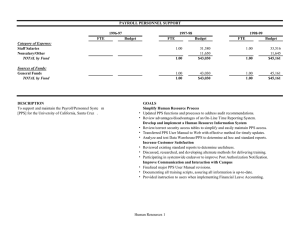
![013—BD Global [DOC 117KB]](http://s3.studylib.net/store/data/005892885_1-a45a410358e3d741161b3db5a319267b-300x300.png)
